PERSPECTIVE
We all react to the dynamics of living that come our way. We have to. There’s lots going on around us that we can’t control so we respond to whatever is thrown our way. And there’s usually some kind of pressure involved in reacting, so we get spurred into action, even though we’re not always at our best. One of my favorite excuse acronyms is “OBE”: I was “Overcome By Events.”

(Yes, grammar fans, I know that technically it’s not an acronym, which generally must be pronounceable as a word; it’s an initialism, which has to be read and said letter-by-letter. “O-B-E.” But you get the idea.)
If we want to avoid or at least minimize the realms of pressure and stress (a rather reasonable goal, I’d say), we might also 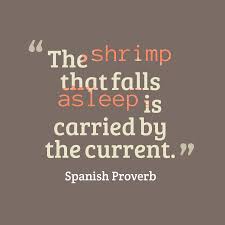 want to cultivate the Art of Being Proactive, when we take creative responsibility for the unfolding of our life and act ahead of the curve, as it were, rather than letting things happen to us. Or just spectating. And then reacting. Under pressure. OBE.
want to cultivate the Art of Being Proactive, when we take creative responsibility for the unfolding of our life and act ahead of the curve, as it were, rather than letting things happen to us. Or just spectating. And then reacting. Under pressure. OBE.
This certainly applies in the arc of our individual private lives, but my focus here is on our collective ability to positively affect the environment we share, especially as we approach another hot summer.
The Art of Being Proactive is not exactly our strong suit these days, although many of us are pedaling as fast as we can to try to stay ahead of climate disruption, which looms evermore directly in view, daring us to ignore it. Already there are reactions galore in places on the front lines of suffering, amid plenty of denials, hand-wringing, and kicking the can down the road. 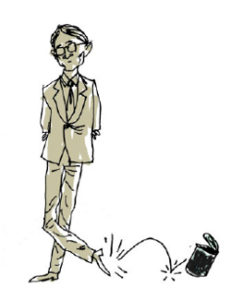 Some agencies are nobly trying to think ahead (and actually do something) about this, but many are in major avoidance mode.
Some agencies are nobly trying to think ahead (and actually do something) about this, but many are in major avoidance mode.
I figure the more we can model the Art of Being Proactive in our daily lives, the more likely we’ll help set in motion a larger, resilient proactivity that will at least be more a part of the solution than the problem. It’s a good bet that resilience will become an ever-rising value in the months and years ahead. Plus, I usually try to go after what I can control and not passively sit back because of a big hairy picture that I can’t get a firm grip on.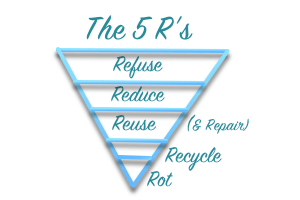
There are many ways to proactivate toward a healthier planet, but I will lift up here only a trio of specific, accessible ideas, beyond the good overall advice of the 5 R’s:
PRACTICAL
“No straw, please.”
My blog last summer—“Fork the Straws”—applauded the advent of Seattle’s city-wide BAN on plastic straws and utensils, but plenty of places elsewhere still bring you drinks littered with single-use plastic straws, which too often then become litter themselves. (And it takes at least 200 years for a plastic straw to decompose.)
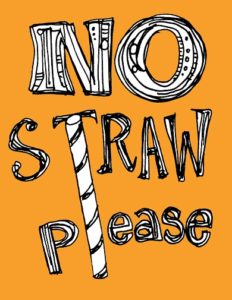 SO, to be more proactive about this, I recommend you add a simple routine whenever you eat out: upon first sight of your server, mention to them that you’d prefer to have “No straw, please.” You may feel awkward about this at first, but it gets easier. And it sends a direct, distinct message to purveyors.
SO, to be more proactive about this, I recommend you add a simple routine whenever you eat out: upon first sight of your server, mention to them that you’d prefer to have “No straw, please.” You may feel awkward about this at first, but it gets easier. And it sends a direct, distinct message to purveyors.
If you can’t prevent the appearance of these planet polluters in your drink, you can at least politely suggest to the server that they should ask first if the customer wants a straw before assuming they do (and some people rightfully do need to use straws).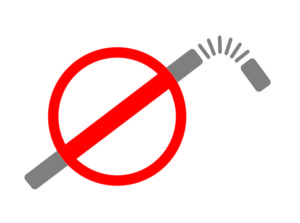
Cold drinks from coffee shops, etc., may be the worst, so in the hot months ahead we’ll all be looking for lots of refreshing beverages, and the more we can discourage automatic plastic straws in them, the better.
BYOC (Bring Your Own Cutlery)
Meanwhile, picnics and barbecues also lurk on the summer horizon, which can mean tons of trash that often doesn’t get recycled, and much of it isn’t really necessary. Such as single-use 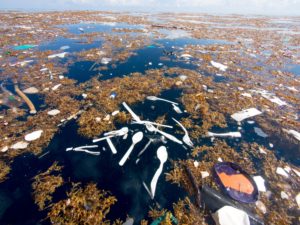 plastic tableware, which also proliferates in many fast food and other eateries (not to mention the oceans). Estimated decomposition rates of plastic utensils run between 50-100 years (Ocean Conservancy Report).
plastic tableware, which also proliferates in many fast food and other eateries (not to mention the oceans). Estimated decomposition rates of plastic utensils run between 50-100 years (Ocean Conservancy Report).
And please note: even products labeled as “compostable” are not welcome in most city composting facilities because the time frame for their decomposition is way too long and they have to be expensively fished out of the compost process. And so-called “biodegradable” cutlery contains contaminating plastic, also non-compostable.
So here’s a great place for us to be evermore proactive, although it might be a bit more demanding initially. (But again, like the way many of us had to work at remembering to bring reusable shopping bags with us when we went to the grocery store – – it gets easier as we build up new habit muscles!)
Campers have long been pioneers in using condensed, 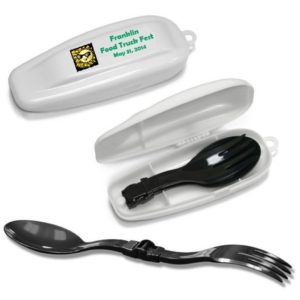 easy-to-clean cutlery kits, and now we’re all called to join them. Get yourself some and stick them in your glovebox, backpack, etc., to pull out and use whenever the occasion merits. And then you can refuse the plastic single-use items that try to get into your hands.
easy-to-clean cutlery kits, and now we’re all called to join them. Get yourself some and stick them in your glovebox, backpack, etc., to pull out and use whenever the occasion merits. And then you can refuse the plastic single-use items that try to get into your hands.
Increasing options are all over the web. Here’s 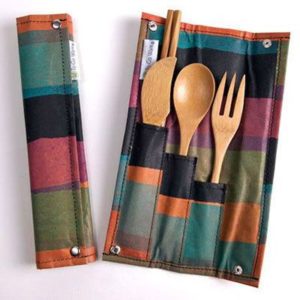 a site that compares a few: Green On the Go: Top Ten Reusable Utensil Sets. They make great gifts, too (like stocking stuffers)!
a site that compares a few: Green On the Go: Top Ten Reusable Utensil Sets. They make great gifts, too (like stocking stuffers)!
And along with the tableware technique, you can add other important ways to avoid plastic and foam, like bringing your own reusable take-away boxes for restaurant 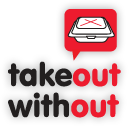 leftovers. (DIY: less bother for your server.) Follow the rebels who lead his charge at http://takeoutwithout.org and “Join
leftovers. (DIY: less bother for your server.) Follow the rebels who lead his charge at http://takeoutwithout.org and “Join ![]() the campaign to reduce restaurant waste.”
the campaign to reduce restaurant waste.”
See also https://myplasticfreelife.com
for lots of helpful commentary and ideas.
TARE THIS!
One thing we want to proliferate are bulk departments at grocery stores. Our Bellingham Food Co-op has an excellent selection of bulk goods (food and spices, plus cleaning agents and body care items) that we can package in our own, reusable containers. They even have shelf space available for people to leave clean containers for others to use, if they forgot one, run out, or need just the right size. Thinking ahead for this kind of shopping—even in small scale, as available—is an immediate way to practice the Art of Being Proactive.

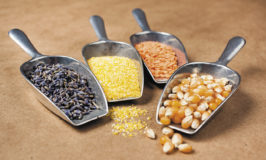 One key aspect of bulk buying is to resist the use of plastic bags to hold the bulk materials (unless you’re reusing your own bags). More and more stores are providing a small scale on which you weigh your own empty glass or hard plastic container and then add a sticker that declares this “tare” weight allowance plus the catalogue number of the item it gets filled with, all
One key aspect of bulk buying is to resist the use of plastic bags to hold the bulk materials (unless you’re reusing your own bags). More and more stores are providing a small scale on which you weigh your own empty glass or hard plastic container and then add a sticker that declares this “tare” weight allowance plus the catalogue number of the item it gets filled with, all 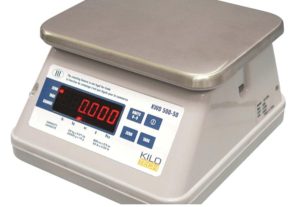 of which are accounted for at check-out time.
of which are accounted for at check-out time.
So we bring our reusable shopping bags into the store filled with empty containers and come out with what we need MINUS any undue (often plastic) packaging! This also provides a good way to repurpose some of the many hard plastic boxes and jars that find their way into our home. The energy to clean out the containers seems well worth it.
Please take advantage of and/or advocate for bulk options in your local grocery store. The more consumers demand and use this method, the faster we can reduce the horrific amount of single-use plastic that comes along with so many of the things we buy.
FINER POINT
Perhaps you’re not quite convinced about the harmful plastic tableware dynamic. Or maybe you’re connected to an eating establishment that wants to Do the Right Thing and eliminate as much plastic as possible.
A very thorough 2017 study of the subject from Pratt Institute (NYC) and the Plastic Pollution Coalition might be of interest:
TRIPLE BOTTOM LINE ASSESSMENT OF
SINGLE-USE DISPOSABLE PLASTIC CUTLERY
Anyone might especially find value in the concluding sections (Health Implications of  Plastics, and Recommendations, ppg. 23-27).
Plastics, and Recommendations, ppg. 23-27).
Proactivate, People!
Many thanks for your good efforts!



